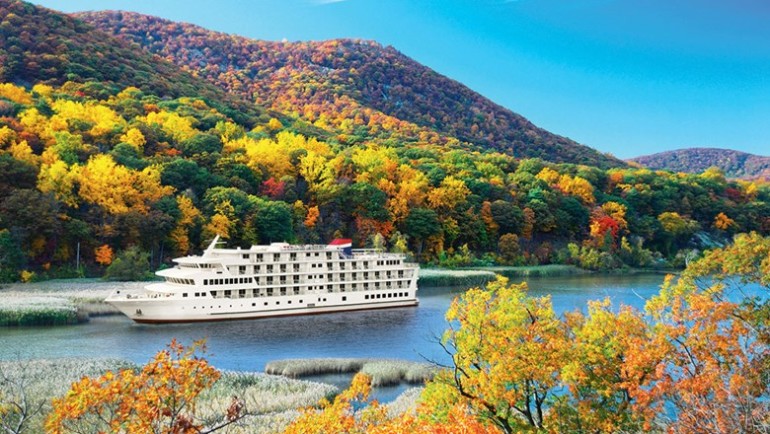Sponsored Listings:
CLIA last week said its member lines would voluntarily suspend cruises from U.S. ports through Sept. 15. The organization said its members would suspend beyond the Centers for Disease Control and Prevention (CDC)’s No Sail Order, currently set to expire on July 24, because it is “increasingly clear that more time will be needed to resolve barriers to resumption” in the U.S.
But not all cruise lines fall under the No Sail Order, and some have plans to resume domestic sailing well before September.
The challenge they face is letting potential passengers know.
Ships with fewer than 250 passengers are excluded from the CDC order and can legally operate in U.S. waters. Of course, small-ship lines have voluntarily suspended their operations until they (or local health officials) deem it safe to relaunch and can implement health and safety protocols. And any plan can end up changing, as American Cruise Lines learned when it canceled what was to be its first river cruise of 2020 in Oregon due to a Covid-19 spike in the region.
But cruises are on the books this summer. American Cruise Lines (ACL) plans to relaunch its coastal sailings in July with the 175-passenger ships American Constellation in Alaska and American Constitution in New England. Uncruise Adventures plans to resume Alaska sailings on Aug. 1 with a Glacier Bay National Park Adventure tour on the 60-passenger Wilderness Adventurer from Juneau. Alaska Dream, which operates ships of between 12 and 76 guests, plans to launch Alaska cruises in August.
For these U.S.-flagged, small ship cruise lines, being able to distinguish themselves from their much larger and mostly foreign-flagged brethren is one of the reasons that a group of small-ship lines formed the U.S. Overnight Passenger Small-boat Operators Coalition in May.
The group includes Uncruise, ACL, Alaska Dream, Lindblad Expeditions, American Queen Steamboat Company, Blount Small Ship Adventures and the Boat Company, and they seek to distinguish who they are, both to government officials and the general public, and let it be known that they are based in the U.S. and for the most part sail U.S.-flagged ships on U.S.-focused itineraries.
“There was a desire to define our business,” said Uncruise CEO Dan Blanchard, the architect behind the coalition. He added that people assume the CDC order applies to all cruise lines.
“We had to try to separate so that the world understood there is a microcosm of U.S.-flagged operators that are still operating.”
The idea came about when cruise lines were being disparaged in the media at the beginning of the pandemic for onboard outbreaks, then for being foreign-flagged and not paying U.S. taxes. “Right or wrong, it’s what happened,” Blanchard said.
Another important facet of the coalition was to educate officials and the public on why they should qualify for stimulus relief: The companies pay U.S. taxes, employ U.S. crew and build ships in the U.S. ACL, for example, is based in Connecticut, builds its ships at Chesapeake Shipbuilding in Maryland, and operates domestic sailings only. Its CEO Charles B. Robertson wants people to know that.
“People will talk about the cruise industry very generally and forget that some members are American citizens and do pay American taxes and hire Americans and so forth,” said Robertson. And that’s us and that’s important to. Our economic contribution to this country is important also.”
For Uncruise, the coalition has also been a way to distinguish the type of vacation product that many of these small lines offer. “We are much more aligned with the adventure travel part of the business than the cruise business,” Blanchard said. “We’re more about hiking, kayaking, snorkeling. We don’t have port calls.”
Both Robertson and Blanchard are careful not to disparage large ship lines, but rather to make a distinction.
“We are all one cruise industry,” Robertson said. “That includes major cruise lines. They’ve done a lot to define cruising as a vacation option we all benefit from.”
Blanchard agreed.
“All of us in this program realize that cruise ships provide a vital service in the travel industry,” he said. “I wouldn’t be in business if I couldn’t ride on the coattails of the marketing that large cruise ships provide. But the primary purpose was to not inadvertently get left out of when it came to providing stimulus.”
Source: travelweekly.com










